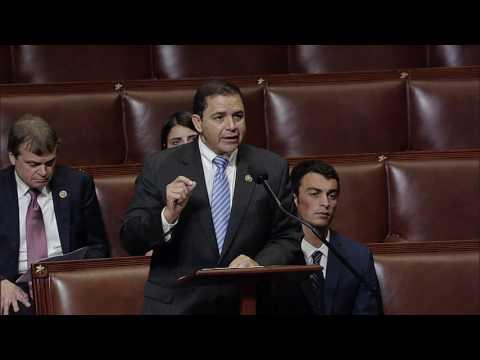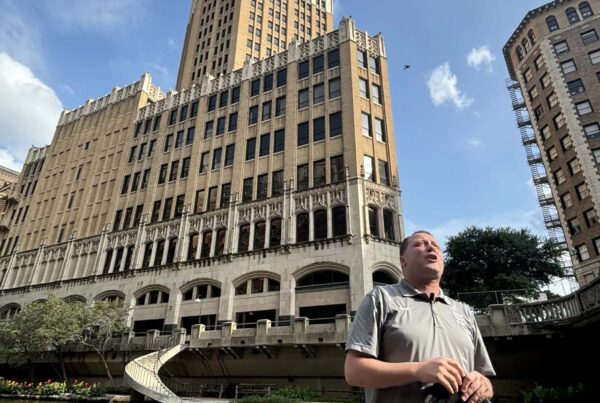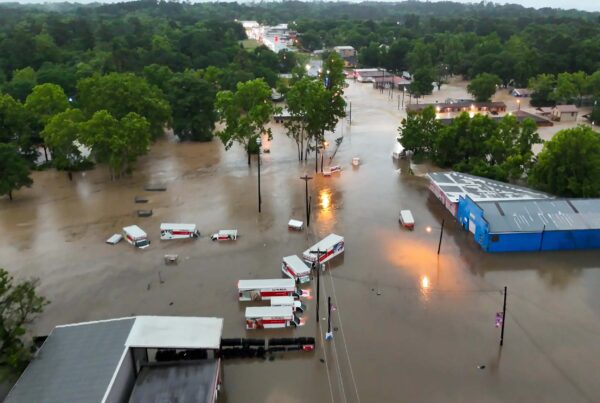From the American Homefront Project:
When Leonard Glenn Francis appeared in a San Diego federal courtroom in March, he wore a beige prisoner jumpsuit over his 6-foot-3-inch frame, a sharp contrast to the flashy wardrobe he was known for during when he wined and dined Navy officers.
Francis was better known as “Fat Leonard” during his decades-long career as a Navy contractor in Asia. From the 1990s through his arrest in 2013, Francis admitted he bribed dozens of Navy officers and civilians with lavish gifts, parties, and cash.
According to the indictment, Francis treated Navy officers to meals of foie gras and duck leg confit, served them $2000 per bottle cognac, gave them Cuban cigars, and arranged the services of prostitutes.
In return, the Navy officials helped steer ships to ports controlled by Francis’ company, Glenn Defense Marine Asia.
“There’s never been such a wide-ranging corruption scandal within the U.S. military,” said Rachel VanLandingham, a former Air Force lawyer who is now a professor at Southwestern Law School. “In modern U.S. history, there’s never been a case that was this encompassing — that cast this wide a net — because we had such far-reaching corruption.”
Francis overcharged the Navy with fake invoices signed off by Navy officials under his sway. He pleaded guilty in 2015 to pocketing at least $35 million in fraudulent billings.
Dan Grazier was a Marine Corps officer who now works as a senior defense policy fellow at the Project on Government Oversight, a non-partisan government watchdog group. He said he’s concerned the lessons of the scandal haven’t been learned.
“I see a broad systemic problem with this case,” Grazier said. “The fundamental problem … is the Department of Defense is over-reliant on contractors for basic support.”
After the Cold War, the Navy closed its Subic Bay base in the Philippines — its main support base in Southeast Asia. That helped open ship husbanding work to contractors. Husbanding involves caring for everything a large warship and thousands of sailors might need when in port — food, supplies, and in some cases, security. Francis provided those services at a steep price.
Francis’ company provided husbanding services and in some cases controlled ports all around the western Pacific. For two decades, Navy ships conducting port calls in places such as Hong Kong, Thailand, the Philippines, and Malaysia would routinely contract with him.
He made it a point to be photographed with Navy brass at functions. He threw lavish parties for the officers of visiting ships with fine food, wine, and often prostitutes.
Grazier said there was a culture in the service that made such a scheme possible.
“There (were) a lot of people that knew this was going on — even if they weren’t participating — and they didn’t report it,” Grazier said.
David Schaus tried to report it. He was a lieutenant running the Navy’s Ship Support Office in Hong Kong in the mid-2000s. It wasn’t long before he found himself at odds with Francis, he said.
During one aircraft carrier port visit, Schaus said he noticed Francis billed the Navy for supplying more water than the ship could hold. It was the first time Schaus met Francis, and he said he remembers it well. Francis lost his temper when confronted with the bogus charges and got in Schaus’ face, he said.
“He’s big and intimidating,” Schaus said. “After he figured out I wasn’t going to back down or move out of his face, he sat down and banged on the table a few times.”
Navy records show Schaus reported Francis multiple times to the Naval Criminal Investigative Service, NCIS. He even installed flow meters to measure how much liquid Francis’ company was pumping on and off ships.
But Schaus said his superiors told him to back off.
“‘It’s not your job to investigate Glenn Defense,'” Schaus said one officer told him. “‘It’s not your job to investigate Fat Leonard.'”
“I was young and idealistic. I didn’t care,” Schaus said. “But, he did have a lot of influence and he was able to make my job difficult.”
It wasn’t long before Schaus left the Navy, and the Hong Kong Ship Support Office was closed.
Over the years, NCIS opened more than two dozen investigations into Francis’ company. In 2013, Francis was arrested in San Diego.
More than 30 people, including an admiral and an NCIS agent, pleaded guilty to bribery and conspiracy-related charges. Other officers were court-martialed. Hundreds were investigated, and dozens received administrative punishment, Navy records show.
The biggest case, however, fell apart in 2022. Four former 7th Fleet officers were found guilty of felony bribery. It was the only federal case out of more than two dozen to go to trial.
But just after that guilty verdict, District Court Judge Janis Sammartino found the prosecutors withheld potentially exculpatory evidence from defense attorneys. The four felony convictions were overturned last year due to the misconduct. The defendants pleaded guilty to lesser misdemeanor charges.
The fallout isn’t over. Last month, prosecutors filed a brief indicating more convicted conspirators could see reduced charges.
VanLandingham said such conduct raises questions about the Justice Department’s handling of the case.
“The U.S. Attorney’s office here in Southern California should have been using the utmost care in prosecuting, and prosecuting the right way,” she said.
The case took another bizarre turn in September 2022 when Francis — who’d been living under house arrest in a San Diego suburb — cut his ankle monitor and fled the country.
He was arrested soon after in Venezuela. After more than a year, he was returned to the U.S. in a prisoner swap. He remains in custody in San Diego, awaiting sentencing.
Prosecutors have said they’re waiting until Francis is sentenced to bring charges related to his escape. A sentencing hearing won’t be scheduled until Francis retains a lawyer. He told the court in January he was going to start looking for a new attorney, but said in March that he hasn’t been able to find one.
Sammartino gave him another 60 days to do so. He’s due in court again this month.
This story was produced by the American Homefront Project, a public media collaboration that reports on American military life and veterans.













